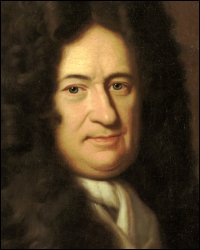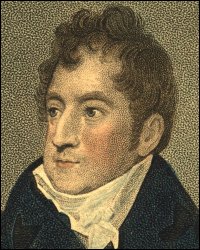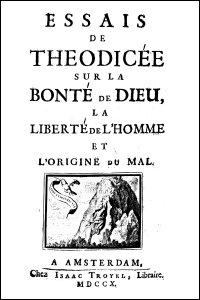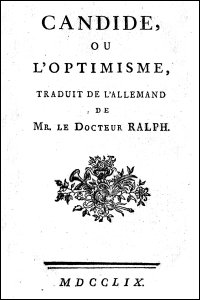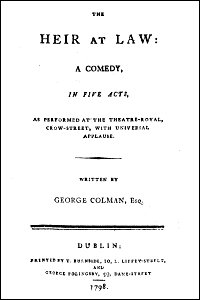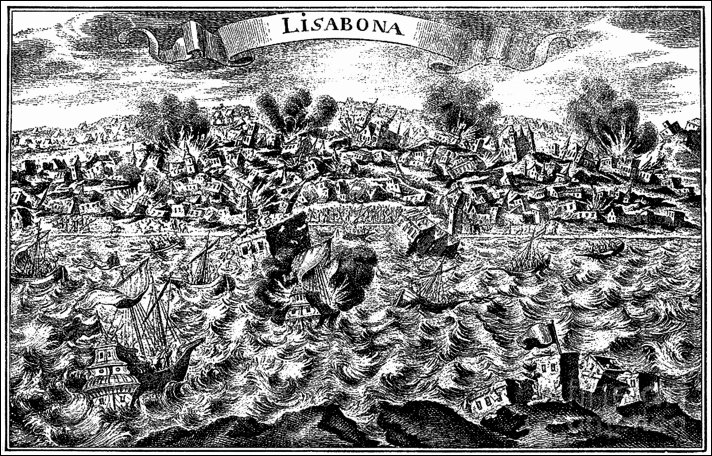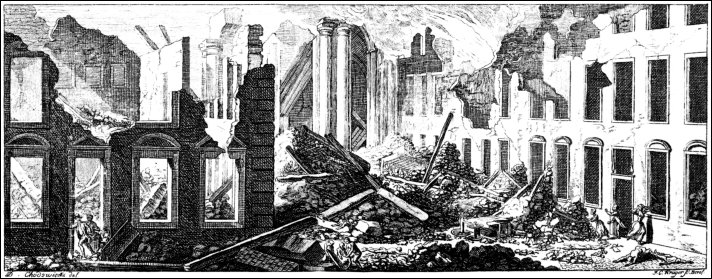panglossianism
![]()
PANGLOSSIANISM *

*
The set of discourses and/or atitudes that systhematicaly cultivates and promotes unsustainable, irrational, misguided, unreasonable, frivolous, superficial, &c. optimist perspectives of our World.
—
The designation of the concept derives from the name of Dr Pangloss, professor of métaphysico-theologo-cosmolo-nigology, the fictional character created by Voltaire (François-Marie Arouet) for his satiric novel “CANDIDE OU L’OPTIMISM” (1759) as a pedantic and unreasonably optimistic tutor.
—
Pangloss‘ name has been coined by Voltaire from Greek [pan + glossia (παν + γλωσσα)] meaning gliber, wordy, verbose, prolix, talkative, &c.
—
![]()
Seventeenth century’s Theology in Europe accepted to face and to discuss the epicurean paradoxical questions: “If God is all-good (omnibenevolent), all-powerful (omnipotent), and all-knowing (omniscient), how can one explain the existence of suffering and injustice in the world?”
—
Aiming to renovate the traditional (medieval) pessimism in religious (Christian) approaches to people’s life on Earth – a supposed suffering transit through a «Valley of Tears», looking ahead to attain eternal happiness in Heaven…, after death… –, Gottfried Wilhelm Leibniz developed an alternative theological optimistic philosophy in his “ESSAIS DE THEODICÉE SUR LA BONTÉ DE DIEU, LA LIBERTÉ DE L’HOMME ET L’ORIGINE DU MAL” [Essays of Theodicy on the Goodness of God, the Freedom of Man and the Origin of Evil], (Amsterdam, 1710), namely standing for the idea of living in “le meilleur des mondes” [the best of all possible worlds / Die beste aller möglichen Welten]…
—
Satirizing Leibnizian ideas, Voltaire (François-Marie Arouet) wrote “CANDIDE, OU L’OPTIMISME” (1759), a fiction novel narrating a long trip during which Dr Pangloss, the pedantic aged tutor of the young (and quite naive) Candide, promotes an unreasonable optimistic perspective of life and world regardless of the circumstances; and namely defending that, in spite of what might happen – shipwreck, earthquake, hanging, flogging, &c. –, “tout va pour le mieux dans le meilleur des mondes possibles“ [all is for the best in the best of all possible worlds].
![]()
The great success of Voltaire’s novel led to the immediate publication of English versions – “CANDIDE: OR, ALL FOR THE BEST” (1759); “CANDIDE: OR, THE OPTIMIST” (1762) – and to performing adaptations to the Theatre and the Opera; a process that started with George Colman‘s (the younger) play: “HEIR AT LAW” (1797).
![]()
![]()
![]()
![]()
—
“It is demonstrable, said he [Dr. Pangloss], that things cannot be otherwise than as they are; for as all things have been created for some end, they must necessarily be created for the best end. Observe, for instance, the nose is formed for spectacles, therefore we wear spectacles. The legs are visibly designed for stockings, accordingly we wear stockings. Stones were made to be hewn, and to construct castles, (…). Swine were intended to be eaten, therefore we eat pork all the year round: and they, who assert that everything is right, do not express themselves correctly; they should say that everything is best.“.[Voltaire – “Candide ou l’Optimisme” (1759)]
![]()
Candide, a naive young sub-aristocrat, must go into exile for daring to kiss his higher-born cousin Cunegonde. On his travels, he encounters the horrors of war, of religious persecution, of slavery, of natural disasters (Lisbon earthquake of 1755)…, everything that refutes the feel-good philosophy of Dr Pangloss, Cunegonde’s tutor, who states that we live in “the best of all possible worlds.”
—
Attained by those several sorts of great cruelties and sufferings, Candide, finally, “stunned, stupefied, despairing, bleeding, trembling, says to himself: — “If this is the best of all possible worlds, what are the others like?”
![]()
![]()
![]()
![]()
![]()
![]()
![]()
![]()

